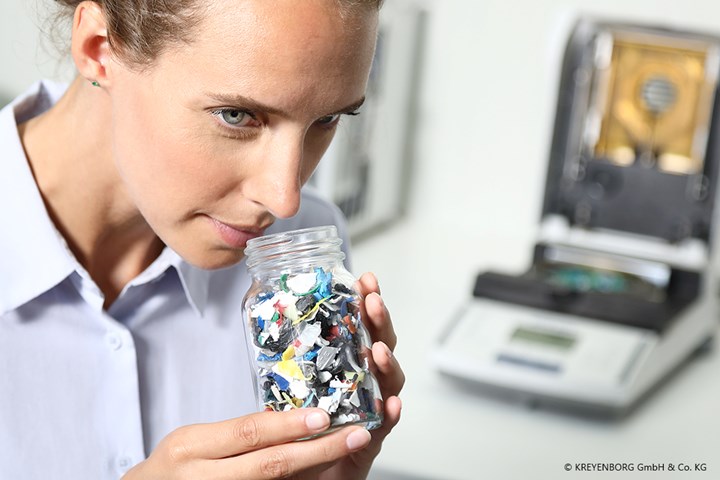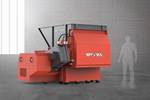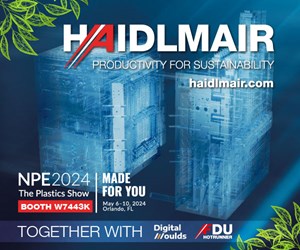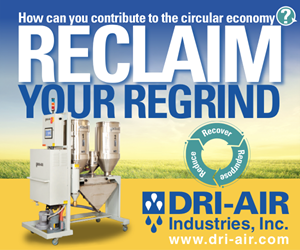Odor-Minimization Technology for High-Quality Recycled Plastics
Kreyenborg’s new IR-Fresh modular system safely and efficiently removes interfering odors in plastics.

New odor minimization technology for high-quality recycled plastics has been developed by Germany’s Kreyenborg. (Represented in the U.S. by eFactor3, Llc, Charlotte, N.C.) The company has developed sustained, high-level expertise in plastics recycling, with solutions for decontamination of PCR-PET, crystallization, drying, and heating of bulk materials, using infrared technology. Furthering this technology is the new IR-Fresh modular system for the safe and efficient reduction of interfering odors in plastics, according to the company. Here’s how it works:
▪ In the first process step, an infrared module installed above the material bed heats the material quickly and directly to the optimum temperature level for the plastic in question. In this process, the continuous rotation of the drum ensures a homogeneous mass flow with a defined dwell time (applying the first-in/first-out principle). Due to the rotation and mixing elements integrated in the spirals, the material is continuously mixed in the drum with constant surface exchange. Combined with controlled heating, this is said to ensure considerable odor elimination, even within a very short residence time.
▪ In the second process step, the remaining odorous substances in the regrind or granules are removed by a thermal-physical cleaning process in the IR-Fresh Conditioner--an insulated hopper that keeps the material to be decontaminated at a temperature range ideal for the decontamination process by means of a hot purge-gas. Excellent results for deodorization and decontamination reportedly can be achieved through the interaction of the main process parameters of air-flow, temperature, and residence time.
Due to its modular design, the IR-Fresh process can be used continuously in two stages both for regrind - before the extrusion process - and for granules after the extrusion process. It is possible to either integrate the IR-Fresh Conditioner as an individual step in the process chain or to operate it as an independent, stand-alone solution either continuously or discontinuously. The IR-Fresh system is also suitable as a retrofit solution for integration in existing plants.
Related Content
-
Foam-Core Multilayer Blow Molding: How It’s Done
Learn here how to take advantage of new lightweighting and recycle utilization opportunities in consumer packaging, thanks to a collaboration of leaders in microcellular foaming and multilayer head design.
-
Recycling: What's Ahead in Advanced Sorting Technology
As the industry tries to ramp up recycling, there are several innovative sorting solutions in the offing—ranging from enhanced optical sorting technologies and chemical tracers to advanced solutions based digital watermarks and artificial intelligence.
-
Advanced Recycling: Beyond Pyrolysis
Consumer-product brand owners increasingly see advanced chemical recycling as a necessary complement to mechanical recycling if they are to meet ambitious goals for a circular economy in the next decade. Dozens of technology providers are developing new technologies to overcome the limitations of existing pyrolysis methods and to commercialize various alternative approaches to chemical recycling of plastics.











